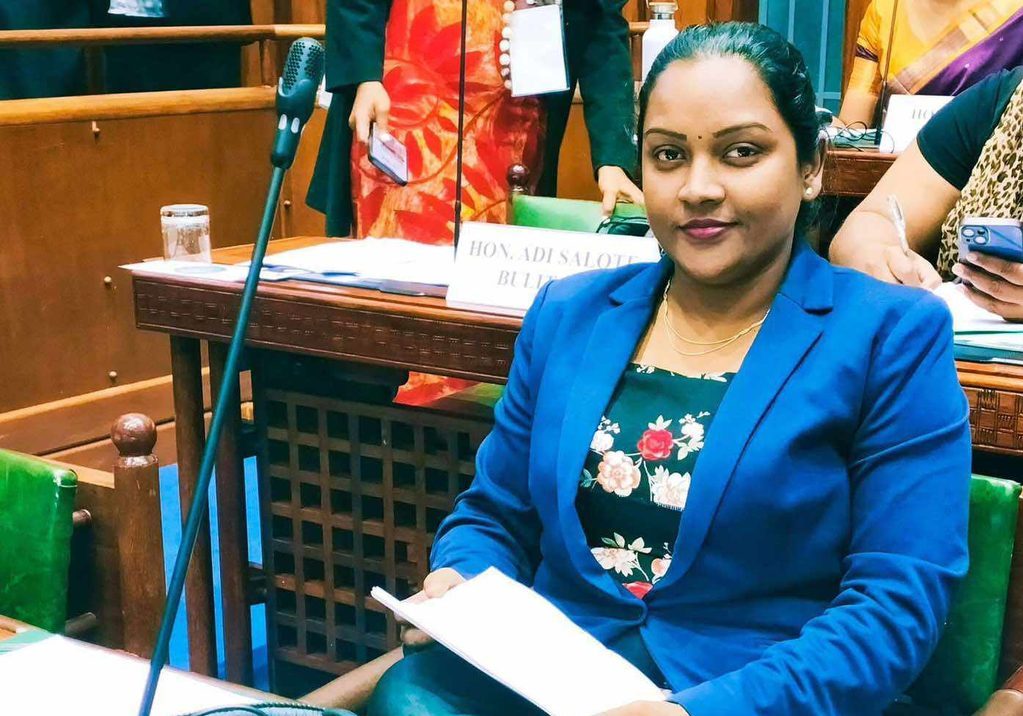FEMALE leadership in politics is crucial in achieving gender equality and promoting governance.
This is what drives Shivashni Dutt, a barrister and solicitor, and principal of Shivashni Lawyers.
Ms Dutt believes the increase in the representation of women in political spaces means more significant influence in the political processes, and an inspiration to the future generations to actively commit themselves to modelling the democratic form of governance.
Drawn towards making a commitment to social change and public service, the Nausori born lawyer has made it her mission to run for the upcoming 2026 General Election.
Ms Dutt was one of the pioneers in the Women’s Mock Parliament in 2024. The experience encouraged her to pursue her newfound interest, listening closely to platforms and messages from party leaders while deciding which party to support.
Ms Dutt shares her thoughts with The Fiji Times on why she has decided to progress from law to politics.
“My journey from law to politics arose from a profound commitment to social change and public service,” Ms Dutt says.
“As a lawyer, I witnessed the ability of the law to shape communities, but also their limitations on the treatment of systemic inequalities.”
She says her work has made her more aware of the critical intersection between legal structures and political environments. It also encouraged her to serve marginalised people and communities.
“This perception motivated my transition to politics, where I imagined the promulgation of comprehensive reforms that prioritise justice and equity.
“By leveraging my legal experience, I intend to defend laws that not only protect citizens, but also promote a more inclusive society, incorporating the essence of public service in essence.”
Ms Dutt also draws inspiration from her personal experiences in life.
“My journey as a lawyer is deeply intertwined with personal experiences that have instilled in me a commitment to justice and equity,” she adds.
“Growing up among the complexities of the Fijian society, I developed a profound understanding of the shades of cultural identity and social disparities.
“These values pushed me to the legal arena, where I support the marginalised communities. The current political environment presents challenges, since floating policies often undermine legal practices and aggravate social injustice.
“However, I remain resolved, taking advantage of my experiences to navigate these obstacles and support the rule of law, striving to encourage a fair company for all in Fiji in a rapidly evolving landscape.”
Ms Dutt says her political objective is to support universal access to quality education, recognising it as the cornerstone of a just society.
She adds that education is vital to break the poverty cycle and strengthen marginalised communities, women’s and youths’ rights and ensuring equal and fair work environment.
“To achieve this, I will collaborate with local organisations, I will involve policy formulators and mobilise basic support to create awareness and boost changes in policies,” she says.
“By implementing orientation programs and improving financing for schools, we can guarantee equal educational resources for all.
“The potential impact is deep; an educated population promotes innovation, decreases crime rates and promotes civic involvement, leading to a more equitable and flourishing society.
“Together we can build a better future for everyone.
The aspiring politician says leading women should cultivate tutoring networks, pursue formal formation in political processes and engage in the activism of the community to build credibility and visibility.
“In addition, it is essential to cultivate resilience against gender prejudice,” she says.
“The transformative impact of women’s participation is evident in improving social results, such as improved health care and education policies.
“By embracing leadership roles, women not only challenge social norms, but also inspire future generations to actively commit themselves to modelling the democratic form of government.”



